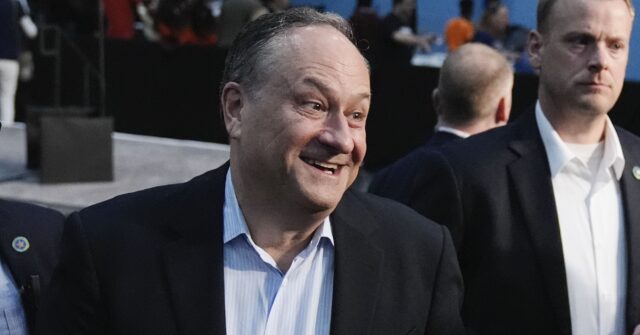In recent discussions surrounding a rally for former President Donald Trump at Madison Square Garden, allegations arose claiming the event featured “antisemitic and racist speeches.” These accusations were notably reiterated by Second Gentleman Doug Emhoff, who described his remarks as a “closing argument” against Trump and antisemitism, especially during an address in Pittsburgh, Pennsylvania. Emhoff’s assertions, which suggested that such hateful rhetoric permeated the New York rally, prompted many media outlets and Democratic representatives to echo these claims. However, upon closer examination, the actual contents of the event revealed no evidence supporting accusations of racism or antisemitism, undermining the narrative that emerged around the rally.
The rally, lasting a considerable six hours, featured various segments, including a performance by comedian Tony Hinchcliffe. Some of his jokes, particularly those deemed ethnic or politically incorrect, attracted media scrutiny. Among them was a comment referencing Puerto Rico negatively, which drew a groan from the audience. Critics, including CNN’s Gregory Krieg, misrepresented audience reactions, asserting that the crowd reacted positively to the remark, which many believe did not reflect the true nature of the attendees’ sentiments. The absence of significant examples of actual racist or antisemitic discourse further discredits the claim that the rally was steeped in such rhetoric.
The media coverage, particularly by outlets like CNN and The New York Times, focused on Hinchcliffe’s controversial jokes, framing them as indicators of a larger problematic atmosphere at the rally. Some jokes were characterized as reinforcing stereotypes, such as one involving Palestinians and Jews, which was reportedly considered offensive. However, these instances were largely rooted in traditional comedic provocation rather than a concerted effort to propagate hate. The light-hearted nature of Hinchcliffe’s performance, representative of the comedy genre, hardly consisted of the systematic hate speech some narratives suggested.
Critically, the narrative surrounding the rally, particularly the claims of antisemitism and racism, lacked substantive backing based on the event’s actual occurrences. Most detailed accounts of the rally’s content provided minimal evidence to support the notion of speeches directed towards hate against specific groups. Instead, the jokes highlighted were more reflective of a comedian’s performance style typically observed in stand-up routines, rather than a deliberate agenda of hatred or racism. This stark contradiction between the claims made and the evidence presented raises questions about the motivations behind the rhetoric endorsed by political figures like Emhoff.
The environment surrounding the rally became a ground for political discourse where exaggerations regarding the event’s atmosphere were exploited for broader political gain. In a charged political landscape, these allegations connect to the need to position Trump and his supporters in a negative light as part of a larger narrative against racism and bigotry. Yet, the drive to associate the rally with antisemitism and racism backfired, revealing a reliance on tenuous examples rather than a firm basis in reality. This kind of politicization showcases how narratives can shape public perception, often distorting the truth for specific political objectives.
In conclusion, while claims of antisemitism and racism at Trump’s rally in Madison Square Garden were widespread, they were ultimately unfounded. The reported “speeches” characterized as such were, in fact, little more than jokes that can be seen as inappropriate or ill-timed rather than outright hateful. The event’s atmosphere has been mischaracterized as a breeding ground for hate speech, leading to a notable disconnect between the actual content of the rally and the political rhetoric that surrounded it. As a result, the need for careful scrutiny of claims made around politically charged events is amplified, highlighting the importance of grounded reporting in an era of heightened political divisiveness.

